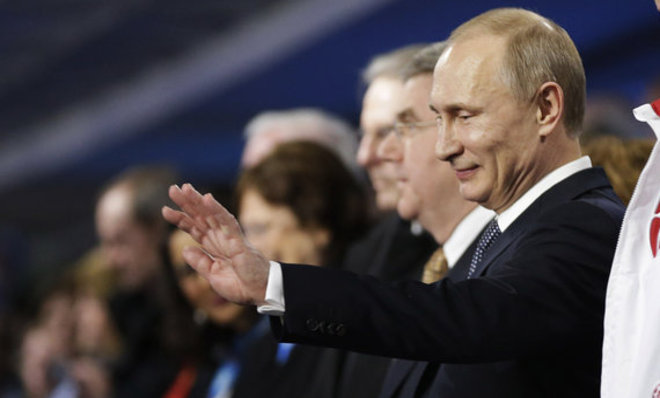Putin's war, not Obama's


A free daily email with the biggest news stories of the day – and the best features from TheWeek.com
You are now subscribed
Your newsletter sign-up was successful
There's a fallacy afoot in the efforts to blame President Obama for the crisis in Ukraine. It goes like this: Because American's hand on the global tiller is unsteady and President Obama failed to enforce his "red line" in Syria, Russian President Vladimir Putin feels empowered to threaten and perhaps make war with Ukraine because he does not fear repercussions. Moreover, by letting Russia invent the solution to Syria's transgression, Putin has earned some political capital that he feels he can spend. There's a veneer of plausibility on these allegations. The president's refusal to endorse some type of kinetic, military punishment against Bashar al-Assad stands as a moral failure to many, and could conceivably have further opened the aperture for murderous misbehavior by other tyrants. And Russia enjoyed its (rare) moment in the sun as the international peace-broker.
But the "if we had only done this" school of foreign policy can easily hang itself by its own noose. The reason why President Obama did not intervene in Syria has more to do with domestic and international norms collected after the disaster of the Iraq War. For the sake of argument, it is more plausible to assume that Americans would be less opposed to military action in Middle Eastern counties if the torment of Iraq were not on their minds. Also plausible: Had the military not learned about modern Middle Eastern adventurism and had generals not developed their own (probably correct) biases against one-off "signaling" military strikes outside the realm of counter-terrorism, Obama's military advisers might well have forecast different outcomes had he decided to punish Assad by, say, airstrikes against the command and control structure, or by a bigger commitment to Syrian rebels.
One undeniable truth: Iraq weakened the U.S. more than anything done since. Maybe Obama overlearned its lessons; maybe we all have. But nothing empowered Vladimir Putin more than America's squandering of moral standing in the early part of this century.
The Week
Escape your echo chamber. Get the facts behind the news, plus analysis from multiple perspectives.

Sign up for The Week's Free Newsletters
From our morning news briefing to a weekly Good News Newsletter, get the best of The Week delivered directly to your inbox.
From our morning news briefing to a weekly Good News Newsletter, get the best of The Week delivered directly to your inbox.
I also find Ukraine and Syria to be different genotypically and phenotypically. Syria was never part of the Soviet empire. The Ukraine was a critical part of it. There is no equivalent Crimean problem in Syria; the duly, if unappealingly elected president of the Ukraine, has asked for Russia's help here. (Yes, we might think that Viktor Yanukovych's election was not legitimate, but that is not a very solid principle upon which to base a recognition of legitimacy; if it were, America really should never attend U.N. generally assemblies and ought to withdraw from half of the treaties it has negotiated.) Crimea has also directly appealed for Russia's military assistance.
None of this is to say that Putin faces a clear path forward. Any post-Sochi halo will disappear the moment Russian troops kill innocent Ukrainians. The West will regroup against Russia for the duration of the conflict. Putin's domestic political standing is at stake, too. War would be disastrous, but Russians don't want to lose Ukraine to the West, and they are particularly protective of ethnic Russians in the Crimea. What I don't know, in other words, is whether the United States's protests would have mattered any more to Putin if Obama had somehow used the U.S. military to punish Syria.
A free daily email with the biggest news stories of the day – and the best features from TheWeek.com
Marc Ambinder is TheWeek.com's editor-at-large. He is the author, with D.B. Grady, of The Command and Deep State: Inside the Government Secrecy Industry. Marc is also a contributing editor for The Atlantic and GQ. Formerly, he served as White House correspondent for National Journal, chief political consultant for CBS News, and politics editor at The Atlantic. Marc is a 2001 graduate of Harvard. He is married to Michael Park, a corporate strategy consultant, and lives in Los Angeles.
